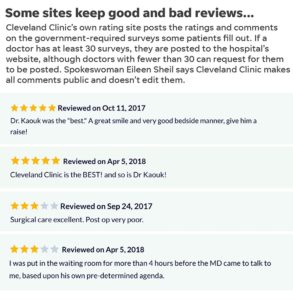What a sad story! The favorite son of a prominent family left his Caribbean home for college in the US. He excelled while matriculating there and stayed on after college. He was an up-and-coming professional in a dynamic metropolis – the Big City.
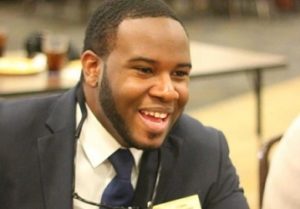
This sad story continues with the harsh reality of Urban America setting in. He was gunned down in his own apartment, by a Police Officer who was at the wrong address.
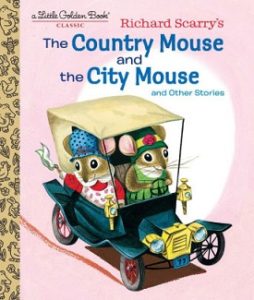 This sad story is the Caribbean version of the fable of the Country Mouse and the City Mouse – preferring security to opulence. Or that it is better to prosper where planted in the Caribbean than to venture to the Big City and live a Fast & Furious life. This was the assertion in a previous blog-commentary from the movement behind the book Go Lean…Caribbean; see below.
This sad story is the Caribbean version of the fable of the Country Mouse and the City Mouse – preferring security to opulence. Or that it is better to prosper where planted in the Caribbean than to venture to the Big City and live a Fast & Furious life. This was the assertion in a previous blog-commentary from the movement behind the book Go Lean…Caribbean; see below.
This sad story is actually a true story. The victim is St. Lucia born-and-raised Botham Jean. He was shot and killed this past Thursday at his residence in Dallas, Texas. See an aligning news story here:
Title: Government Extends Condolences to the Jean Family
Press Release:- The Government of Saint Lucia extends deepest condolences to former Permanent Secretary Ms. Allison Jean following the sudden death of her son, Mr. Botham Shem Jean.Acting Prime Minister Honourable Ezechiel Joseph, speaking on behalf of the Government of Saint Lucia, stated that the tragic circumstances leading to the death of the 26-year-old in Dallas, Texas, has come as a shock and stated that “our thoughts and prayers are with Ms. Jean, the Jean family and friends during this difficult time.”
Minister Joseph explained that The Embassy of Saint Lucia to the United States of America will do all within its power to assist the family in this time of great sorrow.
Ms. Jean is a long serving member of the Public Service and most recently served as Permanent Secretary in the Department of Education, Innovation and Gender Relations.
Source: Posted September 7, 2018; retrieved September 9, 2018 from: https://stluciatimes.com/2018/09/07/government-extends-condolences-to-the-jean-family/Related news articles:
Our deepest condolences to the Jean Family … who now have to endure this great loss.
See this previous blog-commentary that hypothesizes the theory that the Caribbean Diaspora would do better in their Caribbean homeland. They can actually work to reform and transform their ancestral communities, as opposed to contending with the societal defects in the US. Here-now is that previous submission from April 10, 2017:
——————-
Go Lean Commentary – To Live or Die in L.A.
“… live so fast and die so young…”
“… it’s like a jungle, sometimes it makes me wonder how I keep from going under…” – Rap Song: The Message – Grandmaster Flash & The Furious Five
Considering the edict of “life imitating art and art imitating life”, this has always been a subject of sharp debate and contrast. Is it better to live “fast & furious”, even though there might be a shorter mortality, or is it better to go slow and last longer, as far away from risky propositions as possible?
Shockingly, this is also a Caribbean debate: is it better to emigrate to L.A., New York, Miami, Toronto, London, Paris or any other foreign destination for faster success, or prosper where planted in the Caribbean homeland?
From an American perspective, this debate is best personified with a comparison of California versus the rest of the US. Los Angeles (L.A.) is the principal metropolis of the State of California and all of the West Coast for that matter.
But this debate is bigger than just a consideration of L.A. or California – see Appendix below – it spans the test of time. Even ancient philosopher Aesop presented this dilemma in the fable of “The Tortoise and The Hare”, in which the nimble jack-rabbit lost out to the slow-and-methodical tortoise in a race – this fable is universally accepted as a metaphor for the race of life.
Poets, songwriters, historians, and philosophers have all chimed in on this profound debate. Some claim that it is better to “live large”, make the “world your oyster”, even if that means having a short lifespan than to live a quiet ignoble life where the joys of life are rationed out for longevity instead.
Whenever a celebrity dies young, this debate rages anew. Consider some of the philosophical headlines:
- Live fast, die young: Famous entertainers and athletes average shorter life spans than the rest of us, analysis finds
- Celebrities who died in car accidents: Princess Diana, Paul Walker, Anton Yelchin, more
- ‘Only the Good Die Young’ – Song by Billie Joel.
- ‘Candle in the Wind’ – Song by Elton Song commemorating the short but impactful life of Marilyn Munroe and British Princess Diana.
- Better to live 1 day as a lion, than a 1000 years as sheep.
- The Bible: Make it your goal to live a quiet life, minding your own business and working with your hands… – 1 Thessalonians 4:11
The book Go Lean … Caribbean discusses this contrast; it draws reference to the American Dream versus the California Dream. Consider this excerpt from Page 223:
The Bottom Line on the American Dream
The American Dream is a national ethos of the United States, a set of ideals in which freedom includes the opportunity for prosperity and success, and an upward social mobility achieved through hard work. This idea of the American Dream is rooted in the US Declaration of Independence which proclaims that “all men are created equal… endowed by their Creator with certain inalienable rights” including “Life, Liberty and the pursuit of Happiness.” The meaning of the “American Dream” has changed over history, and includes components as home-ownership and upward mobility. A lot of people followed the American Dream to achieve a greater chance of becoming rich. For example, the discovery of gold in California in 1849 brought in 100,000 men looking for their fortune overnight—and a few did find it. Thus was born the California Dream of instant success. Historian H. W. Brands noted that in the years after the Gold Rush, the California Dream spread across the nation:
- “The old American Dream … was the dream of the Puritans, of Benjamin Franklin’s “Poor Richard” … of men and women content to accumulate their modest fortunes a little at a time, year by year by year. The new dream was the dream of instant wealth, won in a twinkling by audacity and good luck. [This] golden dream . . . became a prominent part of the American psyche”. Today, some posit that the ease of achieving this Dream changes with technological advances, available infrastructure, regulations, state of the economy, and the evolving cultural values of the US demographics.
The Go Lean book serves as a roadmap to introduce the technocratic Caribbean Union Trade Federation (CU) to elevate the region’s societal engines – economics, homeland security and governance – of the 30 Caribbean member-states. In fact, the prime directives of the roadmap includes the following 3 statements:
- Optimization of the economic engines in order to grow the regional economy to $800 Billion & create 2.2 million new jobs.
- Establishment of a security apparatus to ensure public safety and protect the resultant economic engines.
- Improve Caribbean governance for all people, even visiting tourists, to support these engines.
 The quest is to minimize the paradox of future-planning/decision-making for Caribbean citizens. We want to make the Caribbean region better places to live, work and play; this way our citizens would not have to leave … to ‘live and die in L.A., or NYC, or Miami, or any other American, Canadian or European city. The truth of the matter is people die more readily in America due to gun-violence, and automobile accidents than they die in the Caribbean.
The quest is to minimize the paradox of future-planning/decision-making for Caribbean citizens. We want to make the Caribbean region better places to live, work and play; this way our citizens would not have to leave … to ‘live and die in L.A., or NYC, or Miami, or any other American, Canadian or European city. The truth of the matter is people die more readily in America due to gun-violence, and automobile accidents than they die in the Caribbean.
No doubt!
- Visualizing gun deaths: Comparing the U.S. to rest of the world
Whenever a mass shooting occurs, a debate about gun violence ensues. An often-cited counter to the point about the United States’ high rates of gun homicides is that people in other countries kill one another at the same rate using different types of weapons. It’s not true.
Compared to other countries with similar levels of development or socioeconomic status, the United States has exceptional homicide rates, and it’s driven by gun violence.
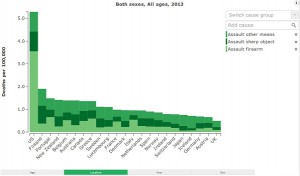
Another issue that gets less attention is how many people die from firearms accidentally. Again, the U.S. has much higher rates of unintentional death from firearms compared to other countries.

- U.S. has highest car crash death rate, despite progress, CDC says
More people die in car crashes each year in the United States than in other high-income countries, the Centers for Disease Control and Prevention said in a report …
In 2013, more than 32,000 people died on U.S. roads, roughly 90 fatalities a day, according to the CDC.
The U.S. has seen a 31% reduction in its motor vehicle death rate per capita over the past 13 years. But compared with 19 other wealthy countries, which have declined an average of 56% during the same period, the U.S. has the slowest decrease.
A previous Go Lean blog-commentary highlighted other statistics of premature deaths (and disability) in the US due to societal defects:
- Millions suffer from Opiod additions – 33,000 die every year
- Suicide befall 40,000 Americans every year.
- 7.7 Million Americans suffer from Post Traumatic Stress Disorder – people who have experienced or witnessed a natural disaster, serious accident, terrorist incident, sudden death of a loved one, war, violent personal assault (i.e. rape), or other life-threatening events.
But the truth is a two-sided coin …
… on the flipside, life in America is more prosperous than in any Caribbean member-state.
The Go Lean book introduces the Caribbean Union Trade Federation (CU) as an inter-governmental agency for the 30 member-states, to provide a better – technocratic – stewardship for Caribbean life, to make it more prosperous … at home. The book identifies that we have a crisis – our failing societal engines – but asserts that this crisis would be a terrible thing to waste. We can use the urgency to introduce and implement effective community ethos, strategies, tactics, implementations and advocacies to reboot, reform and transform the engines of Caribbean society.
We do not want our people to ‘live and die in L.A. …’. We want them to prosper right here in the Caribbean. How sad when our families do move to the US (and other countries) and fall victim to fatalities. Consider these headlines:
- Bahamas-bred family (5) die in horrific Florida car crash.
- 2 Caribbean-bred residents killed in J’Ouvert Caribbean festival shootings in Brooklyn
- Bahamas issues Travel Warning about Crime risk traveling to the US.
- Innocent Minnesota man – Philando Castile – with Caribbean-styled dreadlocks killed by Police.
- Caribbean family – 5 Dead, Including 3 Kids, in Fiery Long Island Crash
- Black Latino, Caribbean racism a factor in police shooting
- Pattern of Montreal (Canada) Police shooting Black Caribbean men
There are good and bad people everywhere. Bad things happen to good people … everywhere. The Bible declares that “time and unforeseen occurrences befall us all” (Ecclesiastes 9:11). Yet still, post-mortem analyses (crash investigations and autopsies) are always necessary to ascertain the root-causes and the lessons-learned:
What could have been done to prevent the loss of life?
This commentary is not asserting that Caribbean people will not be hurt if they remain in the Caribbean. There are car accidents, murders, robberies, rapes and other assaults in the 30 member-states as well.
But follow the numbers!
We are not #1 for either gun violence or auto deaths, like our American counterparts. This is just a matter odds, probabilities and trends; the preponderance for fatalities cannot be ignored.
The Go Lean book contends that as a people, we must be prepared for accidents, emergencies and security risks (Page 196). It asserts that bad actors will emerge just as a result of economic successes in the region. This point is pronounced early in the book with the Declaration of Interdependence (Page 12) that claims:
x. Whereas we are surrounded and allied to nations of larger proportions in land mass, populations, and treasuries, elements in their societies may have ill-intent in their pursuits, at the expense of the safety and security of our citizens. We must therefore appoint “new guards” to ensure our public safety and threats against our society, both domestic and foreign. The Federation must employ the latest advances and best practices … to assuage continuous threats against public safety.
xvi. Whereas security of our homeland is inextricably linked to prosperity of the homeland, the economic and security interest of the region needs to be aligned under the same governance. Since economic crimes, including piracy and other forms of terrorism, can imperil the functioning of the wheels of commerce for all the citizenry, the accedence of this Federation must equip the security apparatus with the tools and techniques for predictive and proactive interdictions.
There is this expression of wisdom, commonly referred to as the Serenity Prayer; it is a prayer written by the American theologian Reinhold Niebuhr[1][2] (1892–1971). The best-known form is:
- God, grant me the serenity to accept the things I cannot change,
- Courage to change the things I can,
- And wisdom to know the difference.
The Go Lean book describes the need for the Caribbean to appoint “new guards” to apply this wisdom – to change the things we can change. The purpose of this security pact is to ensure public safety as a comprehensive endeavor, encapsulating the needs of all Caribbean stakeholders: residents and visitors alike.
We cannot impact Los Angeles, the US or any other foreign city, more than messaging to our Diaspora there. But we can forge change in our Caribbean homeland.
Applying the edict of “life imitating art and art imitating life”, let’s ‘live and die’ here in the Caribbean. Let’s apply the wisdom from the fictional character Spock (the Vulcan Commander on the TV Show/films Star Trek):
May we live long and prosper.
Now is the time for all of the Caribbean – the people and leaders – to lean-in for the empowerments described here in the book Go Lean…Caribbean. It is conceivable, believable and achievable to prosper where planted here in the region; to make the Caribbean a better place to live, work and play. 🙂
Download the free e-book of Go Lean … Caribbean – now!
Sign the petition to lean-in for the roadmap for the Caribbean Union Trade Federation.
————-
Appendix Review – Book/Movie: To Live and Die in L.A.
Sub-title: A 1984 novel by former Secret Service agent Gerald Petievich is the basis for the 1985 movie of the same name.
A harrowing tale of the dark underside of America’s West Coast metropolis. Two U.S. Treasury agents, partners and antagonists, are drawn into a matrix of violence and corruption, southern California-style, that becomes a journey through a sunlit hell – at the end of which they become experts on the thin line between what it takes to live – and die – in L.A. – Source: Retrieved 04-10-2017 from: https://www.amazon.com/Live-Die-L-A-Gerald-Petievich/dp/1466219645
The action thriller film was directed by William Friedkin and based on the novel by Petievich, and co-written by the both men. The film features William Petersen, Willem Dafoe and John Pankow among others. The film tells the story of the lengths to which two Secret Service agents go to arrest a counterfeiter. – Source: Retrieved 04-10-2017 from: https://en.wikipedia.org/wiki/To_Live_and_Die_in_L.A._(film)
See Trailer in the Appendix VIDEO below.
Storyline
Working largely in cases of counterfeiting, L.A. based Secret Service agent Richie Chance exhibits reckless behavior which according to his longtime and now former partner Jimmy Hart will probably land him in the morgue before he’s ready to retire. That need for the thrill manifests itself in his personal life by his love of base jumping. Professionally, it is demonstrated by the fact that he is sextorting a parolee named Ruth Lanier, who feeds him information in return for him not sending her back to prison for some trumped up parole violation. With his new partner John Vukovich, Chance is more determined than ever, based on recent circumstances, to nab known longtime counterfeiter Ric Masters, who is more than willing to use violence against and kill anyone who crosses him. Masters is well aware that the Secret Service is after him. Masters’ operation is somewhat outwardly in disarray, with Chance being able to nab his mule, Carl Cody, in the course of moving some of the fake money , and one of his associates, a lawyer named Max Waxman, probably stealing money from him. Partly with information from Ruth, Chance is trying to find and exploit the weaknesses in Masters’ operation. To accomplish his goal, Chance takes more and more unethical and illegal measures, which may be problematic for Vukovich, who comes from a family of police officers who are sworn to uphold the law. Written by Huggo
————-
VIDEO – To Live and Die in L.A. – http://www.imdb.com/videoplayer/vi1755645209
A fearless Secret Service agent will stop at nothing to bring down the counterfeiter who killed his partner.
Stars: William Petersen, Willem Dafoe, John Pankow


 Freedom of Speech is not so absolute!
Freedom of Speech is not so absolute!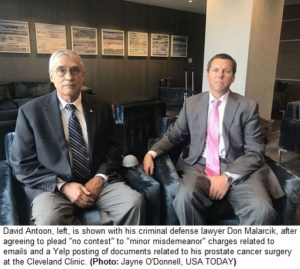 CLEVELAND – Retired Air Force Colonel David Antoon
CLEVELAND – Retired Air Force Colonel David Antoon 

